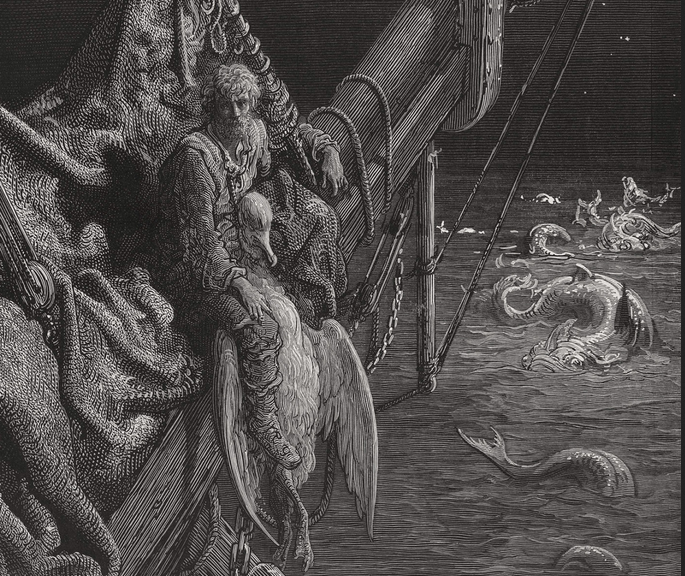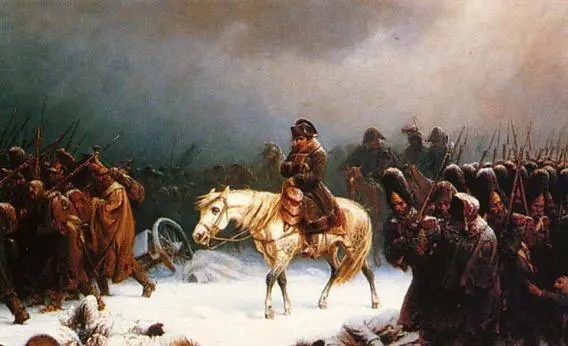Malcolm Guite’s reflections on loneliness coming off of Coleridge’s famous poem are spot-on for our times.
Alone, alone, all, all alone,
Alone on a wide, wide sea!
And never a saint took pity on
My soul in agony.

The poem was written at the end of the eighteenth century, but in some respects, the loneliness evoked in this verse may strike us even more deeply in the twenty-first century than it did its first readers. Loneliness of this profound kind, utter isolation, a sense of being cut off not only from other people but from the cosmos itself, has come to be one of the most common experiences, even perhaps the defining experience, of our own age. And this is not simply the loneliness of the increasing numbers in our society who are living alone, from the bereaved or abandoned elderly to the middle-aged divorced, to singles in their minimalist studio flats, but a deeper, more endemic kind of loneliness: a sense of disconnection, anomie, alienation; that even when we are with people, we are somehow all the more isolated in our own tiny, absurd islander consciousness, separated and marooned in the concavity of our own little skulls with a wide, wide sea of nothingness between us and any other. Ironically, this feeling of isolation is actually deepened rather than relieved by the plethora of online social networks and the almost manic fury with which we acquire virtual friends only to find that no one actually knows us, not even we ourselves.
Add to these observations a worldwide pandemic, and you have mandated isolation now piling on top of isolation. If Covid doesn’t kill you, loneliness will. A solution seems to be forthcoming for the pandemic, but what about the loneliness?
Guite suggests that the root cause of loneliness is philosophical. He points the boney blaming finger at Modernism with its mechanistic view of nature in which matter is dead, and fundamentally all is meaninglessness. That’s the reason we are all so lonely. A reductive, mechanical, scientific view of life gives us no reason to reach out and is thus the culprit. Guite believes the Western world has wised up to this narrow way of viewing life. He says with a fair amount of confidence, “The reductive Enlightenment modernist project is disintegrating all around us” as to what’s next, he is not so sure. However, it is clear what he wishes for.
If like Coleridge, we could embrace a sacral view of nature rather than an instrumental view, we could strike a fatal blow towards loneliness. How so? The working theory coming from this book goes something like this:
Nature is alive; humans as part of nature are interconnected with it. Nature is a symbolic language that moves us into transcendence places. We don’t just see nature; we feel it in our bones. The flashes of beauty and wonder we experience are true whispers of a divine presence. All that is has intrinsic value and is to be cared for and respected. This perspective on life demands interaction and collaborative partnership, which are ruinous to the plague of loneliness.

This sounds like the movie Avatar! Are Coleridge and Guite on to something? Is this nature-loving we are all interconnected business the antidote for loneliness? Sounds good to me. At the same time, it is a bit hard to swallow. Perhaps I am more a child of Modernism than I would like to admit. It might be helpful to note that Christianity of the Celtic persuasion has a long tradition that supports these nature-loving perspectives. In this tradition, all ground is holy. It is no heresy to have a deep love for creation. The earth and sky are God’s church building. Many of the Celtic faithful preferred to worship barefoot and in nature. Celtic teachers taught that healthy spirituality is connected to restorative care of the natural world. The gift of nature was as important as the gift of grace. Both the sun in the sky and The Son of God were to be revered. — Does this perspective evaporate loneliness? Lets’ try it and find out!





